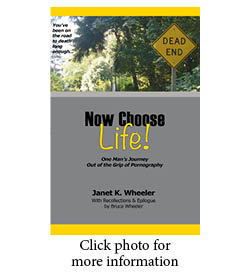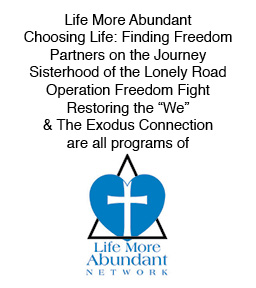Condemnation. It’s ugly. The dictionary defines it as “the expression of very strong disapproval; censure, harsh criticism, vilification.” Even the definition sounds nasty.
We fear condemnation from others, and yet, so often, we so willingly condemn ourselves. We look at our mistakes and failures and see no hope. We become our own judge and jury. We call ourselves horrible names like “stupid”, “loser”, or “unlovable.” We hide and lie because we don’t want anyone else to catch a glimpse of what we’re sure we see in ourselves.
Condemnation is the opposite of the grace the Bible teaches. Yeah, I know, you may have run into Christians that heaped condemnation on you. I certainly did when my first husband left me and ultimately divorced me. There were a number of people who felt obligated to tell me what a wretched sinner I was for getting divorced (as if you can do anything about it in a no-fault divorce state). At first I believed them. I let myself wallow in “my wretchedness.” I felt like pond scum. I spent countless hours scrutinizing every morsel of our life together building a case against me. I analyzed every response and action that I could remember, searching for things to repent of . . . and things to kick myself over. And I found some not-so-proud moments. We all can if we look back over our lives. We ARE sinners. We DO make mistakes and wrong choices. Sometimes LOTS of them.
But, in my quiet pondering times, I discovered something else. God has an antidote for condemnation, whether it comes from ourselves or others. It’s love!
God himself models this love in his grace toward us. I like how Merriam-Webster Dictionary defines grace: “unmerited divine assistance given humans for their regeneration or sanctification. Approval. Favor. Mercy. Pardon.”
We certainly wouldn’t need regeneration, sanctification, mercy OR pardon if we were already perfect. God knew we would fail sometimes and he made provision for that. Those that choose to condemn us don’t understand God’s whole plan . . . and when we choose to condemn ourselves, maybe we don’t either.
No matter what we’ve done, it isn’t final. It’s not the end of our story.
I’m reminded of the adulterous woman in the Bible (John 8:1-11). The law of the day said that adultery was punishable by death, so the Pharisees were preparing to stone her. In their minds this was to be the end of her story.
They questioned Jesus about the situation, knowing that if he stopped them, he, too, would be breaking the law. Realizing their intent, he didn’t answer their question directly. Instead he said, “Let the one without sin cast the first stone.” Slowly, one by one they turned and walked away until only Jesus and the woman remained. Jesus asked her “where are your accusers?” When she pointed out that they were all gone. Jesus said, “Then neither do I condemn you. Go and leave your life of sin.”
Love gives us another chance to do things differently. There is more of our story to be written.
“Therefore, there is now no condemnation for those who are in Christ Jesus, because through Christ Jesus the law of the Spirit who gives life has set you free from the law of sin and death.” –Romans 8:1-2


Leave A Response